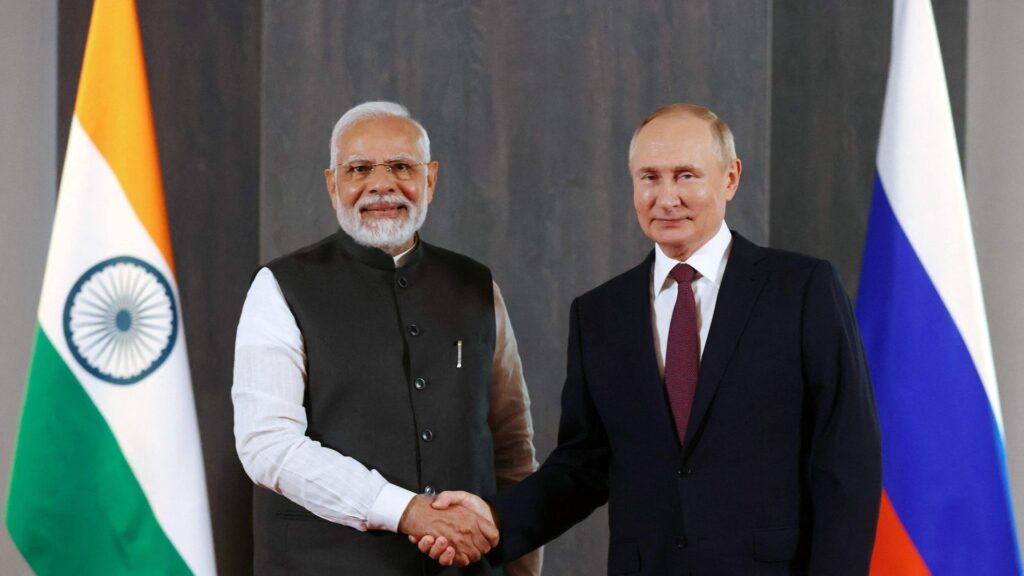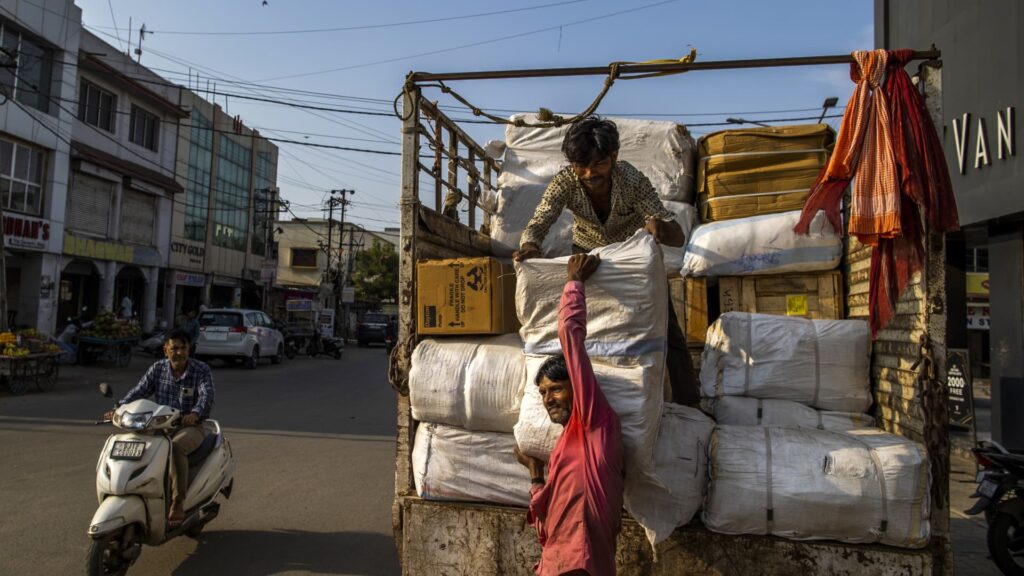KEY POINTS
- Indian Prime Minister Narendra Modi may have publicly rebuked Russian President Vladimir Putin over the war in Ukraine, but the longstanding friendship between the two countries isn’t going away, analysts said.
- “India is in a unique position where it needs Russia in the short term to manage China,” said Harsh V. Pant, vice president of studies and foreign policy at Observer Research Foundation, a Delhi-based think tank.
- “The bulk of India’s conventional weapons are sourced from Russia,” said Sameer Lalwani, a senior expert at the U.S. Institute of Peace. ”[This] means that it relies heavily on Russia for force sustainment including spares, maintenance, and upgrades for years.

Indian Prime Minister Narendra Modi may have publicly rebuked Russian President Vladimir Putin over the war in Ukraine, but the longstanding friendship between the two countries isn’t going away, analysts said.
“Today’s era is not an era of war, and I have spoken to you on the phone about this,” Modi said to Russian Prime Minister Vladimir Putin in a televised meeting at the Shanghai Cooperation Organization (SCO) in Samarkand, Uzbekistan, two weeks ago.
That marked a shift in tone from the early days of the war, when India was seen as unwilling to criticize Russia, given its abstention from a U.N. vote censuring the country for the invasion, among other things.
Russian Foreign Minister Sergey Lavrov, for his part, claimed that Russia and India were “friends,” a month after Ukraine was invaded.
But despite India’s apparent change in stance over the war, India still needs Russia, analysts told CNBC.
Countering China
“India is in a unique position where it needs Russia in the short term to manage China,” said Harsh V. Pant, vice president of studies and foreign policy at Observer Research Foundation, a Delhi-based think tank.
Pant added that India needs the West over the long term in handling its relations with China, citing the latter as “the most important strategic challenger for India.”
China and India have been locked in a two-year-long border dispute in the Himalayas, although troops from both sides have recently started disengaging from the western side. But both still had thousands of soldiers lined up along the de facto border, known as the Line of Actual Control (LAC).
The future of China and India’s relationship is going to be a difficult one, said Raymond Vickery, a senior associate at the Center for Strategic and International Studies.
At a regular Indian Foreign Office news briefing in August, the spokesperson affirmed that India’s policies are “consistent” and “do not require reiteration,” when asked about Delhi’s approach to the “One China” policy.
“In addition, there’s a whole Belt and Road Initiative, which is designed really to give China control over the Indo-Pacific eventually,” Vickery said.
The BRI is China’s ambitious program to build physical and digital infrastructure to connect hundreds of countries from Asia to the Middle East, Africa and Europe. Critics consider it Chinese President Xi Jinping’s signature foreign policy to expand his country’s global influence.
During the recent SCO meeting, India refrained from reaffirming support for China’s BRI.
Military Supplies
Russia is a pivotal military partner and chief arms supplier to India, analysts said.
“The bulk of India’s conventional weapons are sourced from Russia,” said Sameer Lalwani, a senior expert at the U.S. Institute of Peace. ”[This] means that it relies heavily on Russia for force sustainment including spares, maintenance, and upgrades for years.
According to data firm Stockholm International Peace Research Institute, India was the top importer of Russian arms from 2017 to 2021, and Russian equipment made up 46% of India’s arms imports.
Though it’s a far cry from the 80% figure during the Cold War, it still reflects India’s “big dependence” on Russia, said Pant, especially given that tensions between India and China over the LAC are still “very active.”
“Russia remains India’s most important [military] partner,” he added.
India also increased its purchase of Russian oil following the Kremlin’s invasion of Ukraine, benefiting from discounted rates.
Ties will ‘endure for decades’
India’s longstanding friendship with Russia isn’t going away — and that’s thanks to its military dependence, according to Lalwani.
“Even while India seeks greater indigenization of its defense capabilities, absent a stunning and financially exorbitant overhaul of its force structure, it will continue to depend on Russian arms, munitions, and subcomponents for decades,” said Lalwani.
He added that India’s exports of cruise missiles to Southeast Asian states cannot function without Russian propulsion systems.
“Even if the India-Russia military relationship is on the downswing, it will still endure for decades.”

